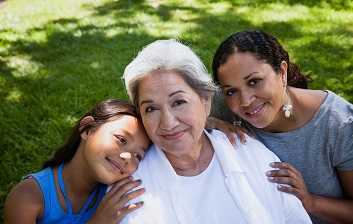WISEWOMAN Overview

The WISEWOMAN program currently consists of 21 programs in 19 states and 2 tribal organizations.
The WISEWOMAN (Well-Integrated Screening and Evaluation for WOMen Across the Nation) program helps women understand and reduce their risk for heart disease and stroke and promotes lasting heart-healthy lifestyles. The WISEWOMAN program served nearly 150,000 women between 2008 and 2013—91% of whom had at least one risk factor for heart disease and stroke—and nearly 101,000 women participated in a healthy lifestyle service to reduce these women’s risk for heart disease and stroke.
Administered through CDC’s Division for Heart Disease and Stroke Prevention (DHDSP), the WISEWOMAN program currently consists of 21 programs in 19 states and 2 tribal organizations. The program operates in states and tribal organizations that participate in the National Breast and Cervical Cancer Early Detection Program (NBCCEDP), which helps ensure women participating in the NBCCEDP receive a full range of health services.
WISEWOMAN Improves Women’s Health
The WISEWOMAN program serves low-income, uninsured, and underinsured women aged 40 to 64 years, with heart disease and stroke risk factor screenings and services that promote healthy behaviors to reduce the risk for heart disease and stroke. CDC provides funding to local WISEWOMAN programs to enable qualifying women to receive free screenings and counseling about their risk for heart disease and stroke. Women are then supported as they participate in evidence-based lifestyle programs, individual health coaching, or referred to other community resources. The services provided by each WISEWOMAN program vary, but all are designed to promote lifelong heart-healthy lifestyle changes.
WISEWOMAN Improves Heart Disease and Stroke Prevention
The WISEWOMAN program aims to improve the delivery of heart disease and stroke prevention services by focusing on cardiovascular disease (CVD) risk factors, specifically improving blood pressure control. WISEWOMAN helps integrate innovative and evidence-based approaches to heart disease and stroke prevention within health care systems and throughout communities.
Examples of this include:
- Using a team-based care approach, which includes the patient and the patient’s primary care provider, nurses, pharmacists, and community health workers, to provide care for patients with high blood pressure and other risk factors.
- Supporting clinicians by providing tools and resources to help their patients regularly measure their blood pressure at home.
- Providing tools to pharmacists to work with patients to help them take their blood pressure medications as directed.
- Providing skill-based trainings to encourage participants to improve their diet and increase physical activity.
- Referring smokers to quit lines or other tobacco cessation resources.
- Supporting community-based farmers’ markets and other programs to increase access to healthy, fresh food options.
- Providing access to community-based physical activity options such as YMCA memberships and passes to local park and recreation services.
- Increasing the number of evidence-based lifestyle programs offered in communities such as the National Diabetes Prevention Programs and Take Off Pounds Sensibly Club, Inc. (TOPS) groups.
Read success stories about WISEWOMAN programs implementing innovative approaches for heart disease and stroke prevention, and find more program information in the WISEWOMAN Technical Assistance and Guidance Document [PDF-3.3.MB].
- Page last reviewed: January 20, 2017
- Page last updated: January 20, 2017
- Content source:



 ShareCompartir
ShareCompartir